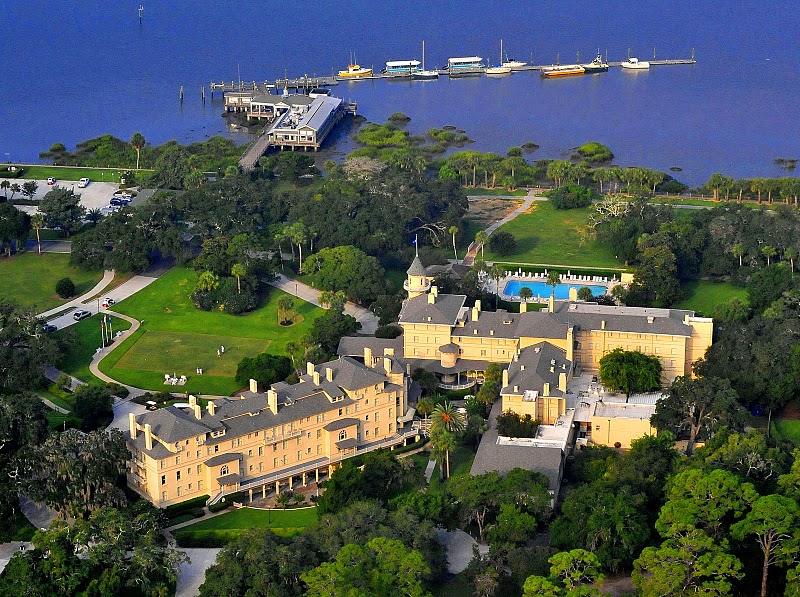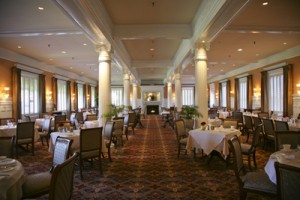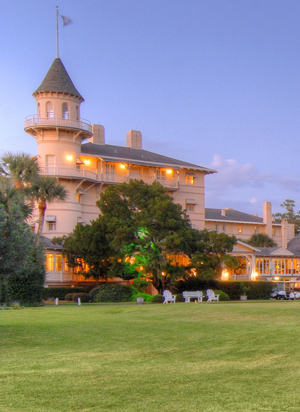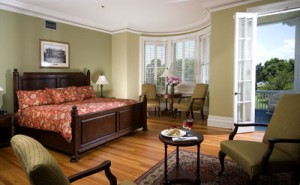Found along the sleepy coast of Georgia, Jekyll Island seems like the kind of lazy, sun-dappled place where nothing of importance could possibly happen. However, the rich history of this barrier isle tells a far different story – one of many pivotal events that helped shape American history.
No Fountain of Youth, Sadly
Offshore of Jekyll’s long stretch of sandy marshland that faces the Atlantic Ocean, a natural treasure gave rise to the island’s first name, given by Spanish explorers in the 16th century. The 22 square miles of Gray’s Reef, a richly bio-diverse sanctuary, was home to so many “right whales” that the first Europeans to set sight on the island dubbed it Isla de Ballenas, or Island of Whales.
The island, together with other Spanish-claimed colonies in what was to become the United States, was governed by Juan Ponce de León. While his famously sough-after Fountain of Youth, giver of eternal life, wasn’t discovered on Jekyll Island, at the very least, one can say that “island time” does seem to move rather slower than on the mainland.
Last Bastion of Slave-Trading
During the 17th century, the island’s history became tumultuous; the rising British desire for dominion over their expanding North American colony lend to attacks on the Spanish and Native American settlements on Jekyll, culminating in English rule by 1702, and the establishment of the Colony of Georgia in 1733.
The island’s new name was not, in fact, inspired by Robert Louis Stevenson’s split-personality horror novel, but by a far less interesting friend of the new Georgian governor. In the late 18th century, the island became a slave plantation run by an escapee from the French Revolution, Christophe du Bignon. The island was the site of one of the last successful shipments of slaves from Africa in 1858, a shameful 50 years after the practice was made illegal.
Members (of the Aristocracy) Only
As the plantation had floundered after the end of slavery, the island fell into disrepair, until Christophe’s son, John Eugene, gathered investors to build a luxurious club house and transform it into the must-visit destination for the East Coast elite. From the late 19th to the early 20th century, the island’s guest list read like a Who’s Who of American oligarchs; the Morgans, Vanderbilts, Rockerfellers, and politicians of all stripes joined the club.
Unique for the era, the club was family-oriented, and women were permitted to join their husbands in hunting, fishing, golf and bird-watching. Notably, the clubhouse was the site of the first trans-Atlantic telephone call, made by the president of AT&T to Alexander Graham Bell, Thomas Watson, and then-president Woodrow Wilson in 1915.
Genesis of the Federal Reserve Act
Secrecy and islands are close companions – and no political act required more secrecy than the creation of the Federal Reserve, which controversially established America’s private central bank. Bankers from across the nation were summoned for a forum on financial reform, covertly travelling to the island using coded language and cover stories, claiming to visit the island for a duck-hunting vacation. Once there, they met with political figures like Senator Nelson Aldrich, and ultimately developed a plan for the Reserve.
The subsequent bill failed spectacularly in Congress, but for the bankers, it was far from a wasted trip. As a friend of American’s elite and frequent visitor to Jekyll, Woodrow Wilson also features in this story – in 1913, he managed to sign a revamped version of the quashed bill into law right before the Christmas break. The bill passed with a total of three votes – the majority of Congress, which had denounced the previous attempt, had believed that the session was finished and had left for the holiday.
The Island’s Decay…
By World War II, the Jekyll Island Club had seen better days; the Great Depression had taken its toll on even American’s wealthy, and membership had stagnated throughout the 1930’s. The club made an effort to appeal to a more modest crowd with new , less expensive membership options, but by the dawn of the 1940’s, it was clear that the club was in dire straits. The 1942 season would be its last – until, at least, it was turned into a state park in the latter part of the decade. The money-losing government owned resort was shuttered in the 1970’s, and eventually, it became a privately run hotel and designated historical landmark.
…and Rebirth
After a stint being run by the Radisson hotel chain, the resort is now known simply as the Jekyll Island Club Hotel. The dramatic turreted building has undergone many transformations since its construction in the late 19th century; now, its pastel hues are fresh and bright, and the guestrooms, while keeping their Victorian character, have been updated with modern amenities.
One of the island’s most enduring attractions, aside from simple relaxation, is golf – the club’s 63 holes will keep even the most avid aficionado busy. While the hotel has a 4-star rating, rooms start at an affordable US $169 a night, ramping up to a $459 Presidential Suite. A perfect place to experience Georgia’s charms – and maybe make a little history of your own!
Learn more about visiting this historic Georgia landmark: http://www.jekyllclub.com/






